Archive for June, 2011
MOU doesn’t need UK nod
(CNS): The government will not need approval from the UK to do business with the China Harbour Engineering Company (CHEC), even though it is a state owned firm. The Governor’s Office confirmed Thursday that the MOU the government has signed with CHEC “does not fall within the ambit of external affairs as contemplated under section 55(1)(b) of the Constitution. As such, UK consent or approval is not required.” Queries had been raised in the wake of the announcement by the premier that he had signed an MOU with the state owned Chinese company that the deal would need FCO approval. In particular, the PPM member for East End, Arden McLean, had said that this was a foreign government and a communist country.
During his budget reply in the Legislative Assembly earlier this week the premier took aim at the opposition members for suggesting that he was doing something wrong by entering into a deal with the firm. He said they were showing their ignorance when they criticised him over doing business with a communist country. He told McLean, “You can’t catch communism like a cold,” and said that the UK and the USA, as well as many other countries, were doing business with the Chinese.
“Everything and anything is being said by the opposition to ‘blaggard’ everything we are trying to do,” the premier said when he closed the budget debate.
Despite the extensive media coverage to the contrary and questions about the firm, the premier denied there was anything going wrong in Jamaica with the work CHEC was doing there. The premier said he had a letter from that country’s contractor general denying there were any investigations going on. He added that he believed there was nothing wrong with Cayman doing business with the firm and he wished they could do a lot more.
The premier has signed a preliminary deal with CHEC to develop the cruise berthing facilities in George Town on a 49 year concession and to construct a cruise berthing pier in West Bay that will service the Turtle Farm. He has also signed a separate agreement to renovate the Spotts jetty, where work is expected to start next month.
During the Finance Committee session on Thursday the premier denied that the $3 million which has been advanced by CHEC to do the work at Spotts needed to be added to government’s anticipated costs for interest payments on public debt. The opposition leader, Alden McLaughlin, pointed out that the recently signed MOU states that if the Cayman Islands Government and CHEC can’t reach an agreement on the details of the George Town and West Bay cruise developments, the government will reimburse the Chinese firm for the Spotts work.
Bush angrily rejected the need to do that and said were it to reach that point he would bring the deal to the Legislative Assembly and make the arrangements, but he said it was not adding to the financing arrangements for something that had not yet happened. He said it was his goal that the cruise talks would move fast and that things would be in place soon and he did not need to put the $3 million on the financing appropriations as it was not a loan.
The premier has stated that he hopes to move to a framework agreement with CHEC for the cruise berthing projects to be underway by November.
See MOU with the premier and CHEC below.
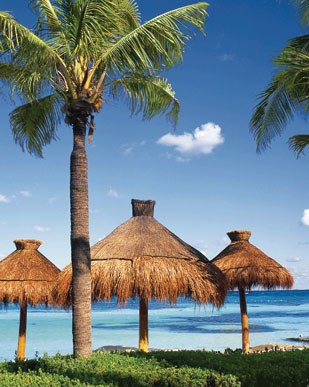
Tourism sector finds borrowing tough
 (CNS): Only hotels in the Caribbean with well-known household names are likely to have received cash in recent times, according to a study carried out by KPMG. Globally branded projects, which are well capitalised and carry low levels of debt to equity are the best positioned to succeed when it comes to receiving financing while financial institutions continue to remain tight on lending, the report says. KPMG’s 2011 Caribbean Region Financing Survey focussing on lending in the hospitality and tourism sector in the Caribbean was based on findings carried out by KPMG professionals from across the region from February to April 2011.
(CNS): Only hotels in the Caribbean with well-known household names are likely to have received cash in recent times, according to a study carried out by KPMG. Globally branded projects, which are well capitalised and carry low levels of debt to equity are the best positioned to succeed when it comes to receiving financing while financial institutions continue to remain tight on lending, the report says. KPMG’s 2011 Caribbean Region Financing Survey focussing on lending in the hospitality and tourism sector in the Caribbean was based on findings carried out by KPMG professionals from across the region from February to April 2011.
It targeted senior corporate bankers and senior executives of niche financiers, representing a total of US$2.8 billion in exposure to the tourism sector. Countries represented were the Bahamas, Dominican Republic, Barbados, Jamaica, Bermuda, Trinidad & Tobago, British Virgin Islands, Turks & Caicos Islands and the Cayman Islands.
As the downturn in the global economy continues to impact lenders, new and increased credit facilities are being made available to established hotel operations and operators with strong track records, according to the report.
“Borrowers are, in most cases, well capitalised borrowers and, ideally, part of a recognised chain of branded properties. A strong operator and hotel brand is seen as a prerequisite in order to survive and, in some instances, thrive within the increasingly price competitive market, where hotel properties are faced with operating cost pressures,” the report says.
In comparison, very little lender financing activity was to “greenfield” or boutique properties.
The report goes on to say that renegotiation and restructuring activities have increased where borrowers have got into difficulties and lenders have become more active in monitoring loan portfolios.
Lenders are also requiring borrowers to take additional risk in hotel projects by lowering loan to value ratios. The report says the impact has been that lenders are able to reduce exposure as thinly capitalised projects are not likely to be financed. At the same time a decrease in property values is likely to further impact existing loan exposures.
To move stalled projects forward, survey participants said there was a need for an assessment of the market, and an injection of additional equity to recapitalise the project.
“One of the themes in these responses was that where the project had stalled, there was erosion in the credibility of the sponsors, and their initial assessment of the project’s feasibility,” the report noted.
Lenders, it said, continue to exhibit a cautious approach to lending and see a gradual improvement in the Caribbean tourism sector. That said, this year they are increasingly worried about international world developments.
Global and regional macroeconomic indicators, including the price of oil, world food and commodity prices, and the socio-political developments in northern Africa and the Middle East were some of the issues currently worrying bankers and developers. Others issues of concern to the region’s tourism industry included the implementation of the UK travel tax and the increased awareness of regional crime in the international press.
Regional stopover visitor arrivals have fallen in each of the last three calendar years and are now lower than they were in 2006. With regard to stopover visitors, some of the winners were Cuba, Dominican Republic and Jamaica, with Puerto Rico and Bahamas being the biggest losers, the report stated.
Survey participants ranked global economic issues as being the most significant challenge and the strongest indicators of a turnaround in the tourism sector (73 per cent), while issues such as operating costs, social issues, the UK travel tax, and the quality of hotel product were each thought to pose a significant challenge to the sector, by approximately two percent of the survey participants.
Only 36 percent of the survey participants had positive views for the prospects of the Caribbean tourism industry over the next 12 months.
See full report here
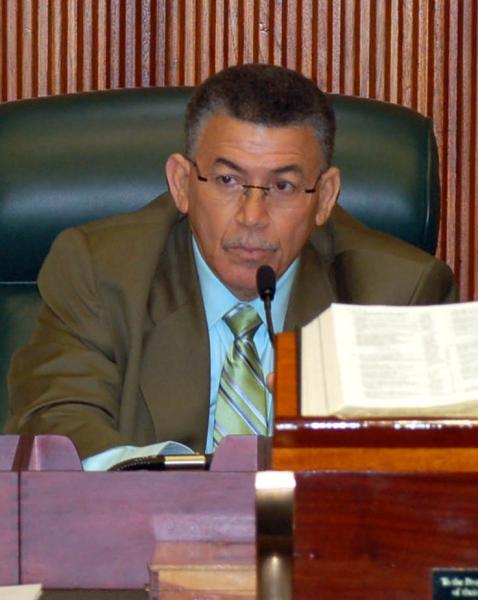
Gov’t working hard says Mac
 (CNS): The premier told the Cayman people in a broadcast address on Thursday evening that he and his government were hard at work on their behalf. McKeeva Bush said that as a result of that hard work and despite the economic decline in the last two years, the outlook for 2011 was more optimistic. The modest recovery, he added, was supported by construction projects due to start later this year. However the premier warned against negative publicity and “negative demonstrations” as he took aim at the planned march on Tuesday. “These islands are being watched every day by the international world and the PPM has now encouraged what they term civil disobedience,” he said.
(CNS): The premier told the Cayman people in a broadcast address on Thursday evening that he and his government were hard at work on their behalf. McKeeva Bush said that as a result of that hard work and despite the economic decline in the last two years, the outlook for 2011 was more optimistic. The modest recovery, he added, was supported by construction projects due to start later this year. However the premier warned against negative publicity and “negative demonstrations” as he took aim at the planned march on Tuesday. “These islands are being watched every day by the international world and the PPM has now encouraged what they term civil disobedience,” he said.
Bush accused the opposition of being out of touch with reality and having nothing to offer. “When people are out to spread a message of fear, to create a climate of doubt and suspicion, you wouldn’t expect them to have anything much to show beyond wild rhetoric,” the premier said in his TV and radio message.
He said the “noise” being made by the opposition was merely about shouting down the good his government was trying to do — “the jobs we are trying to create, the progress we are trying to generate for the people of these islands.”
He denied that government had anything to do with the debate over the East End port facility. “This is a proposal which the proposed developer has had the good sense to open up to public scrutiny; it is a proposal which would be subject to the full rigours of scrutiny with respect to the impacts it would have, the resources it would require, and the benefits it might bring,” Bush said that the port was not being built by government, the property in question was not owned by the government and it had not been approved by government.
He said, “The Dart proposal is good, the oil refinery is good, the projects that the China Harbour Company offers are good. They will create opportunity and a better economy for all.”
As he took aim at the opposition, he said that beating up on the government was one of the world’s oldest sports and some of our "so-called leaders" were "in the Olympic class" but that there was no gold medal in the sport.
The premier said government continues to work night and day to make things better for Cayman, for all thepeople of the Cayman Islands. “The things we do, and some things we have to undo, are based on this, and grow out of this objective. We work for you!” he exclaimed. “We are not deaf to criticism, nor do we stop our ears when constructive suggestions are brought forward. We are working for you, for all of us, and for all our children, and we implore you to judge our efforts objectively,” Bush pleaded in the address.
See full statement below.
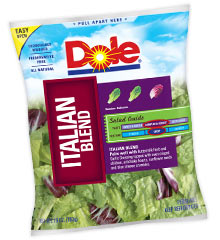
Salad recalled over risk of food poisoning
 (CNS): As a result of a recall by Dole Fresh Vegetables of around 2,880 cases of salad due to a possible health risk from the bacteria Listeria monocytogenes, local supermarket Foster's Food Fair is notifying the public to remove all Dole Italian Blend Salads with UPC number 000 71430 00819 “Best By Date” 19 June from their homes. Although the date has passed the supermarket management said it was still warning consumers because at times people may not always look at expiration dates. “We are urging the public that if they do have this product check it before using,” Foster’s said Thursday afternoon.
(CNS): As a result of a recall by Dole Fresh Vegetables of around 2,880 cases of salad due to a possible health risk from the bacteria Listeria monocytogenes, local supermarket Foster's Food Fair is notifying the public to remove all Dole Italian Blend Salads with UPC number 000 71430 00819 “Best By Date” 19 June from their homes. Although the date has passed the supermarket management said it was still warning consumers because at times people may not always look at expiration dates. “We are urging the public that if they do have this product check it before using,” Foster’s said Thursday afternoon.
The Product Code and Use-by Date are in the upper right-hand corner of the package; the UPC code is on the back of the package, below the barcode.
No illnesses have been reported in association with the recall. This precautionary recall notification is being issued due to an isolated instance in which one package of Dole Italian Blend salad yielded a positive result for Listeria monocytogenes in a random sample test collected and conducted by the Ohio Department of Agriculture.
Listeria monocytogenes is a bacterium that can cause food borne illness in a person who eats a food item contaminated with it. Symptoms of infection may include fever, muscle aches, gastrointestinal symptoms such as nausea or diarrhea. If it spreads to the nervous system symptoms may include headache, stiff neck or confusion. The illness primarily impacts pregnant women and adults with weakened immune systems. Most healthy adults and children rarely become seriously ill.
We encourage all customers who have purchased this product to return the affected product to their Foster’s Food Fair IGA of purchase for a full refund.
The Product Codes are 0049A157201A, 0049A157201B, 0049A157202A, 0049A157202B, 0686A157202A, 0686A157202B
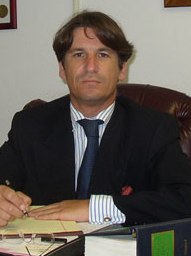
New judge appointed to Grand Court bench
 (CNS): The Cayman Islands Grand Court finally has a new permanent judge. Governor Duncan Taylor announced that Justice Richard Williams will take up his post on 12 September, having been appointed on the advice of the Judicial and Legal Services Commission. This is the first time that a local judge has been appointed via the new commission, which was established in the 2009 constitution. The position was filled after an open recruitment process advertised both locally and overseas. Following the short-listing, an interview panel of four members of the JLSC and the chief justice interviewed six people for the job. The panel was unanimous in its view that the qualifications, experience and skills of Justice Williams made him the strongest candidate.
(CNS): The Cayman Islands Grand Court finally has a new permanent judge. Governor Duncan Taylor announced that Justice Richard Williams will take up his post on 12 September, having been appointed on the advice of the Judicial and Legal Services Commission. This is the first time that a local judge has been appointed via the new commission, which was established in the 2009 constitution. The position was filled after an open recruitment process advertised both locally and overseas. Following the short-listing, an interview panel of four members of the JLSC and the chief justice interviewed six people for the job. The panel was unanimous in its view that the qualifications, experience and skills of Justice Williams made him the strongest candidate.
There has been a vacancy on the Grand Court Bench since the former Justice Priya Levers was removed last year following the decision of the UK’s Privy Council based on the findings of tribunal that was held in the Cayman Islands in May 2009.
Since then the courts have been depending on a team of visiting temporary judges from around the region, who have been helping with the growing workload of the courts system.
Justice Williams is currently a Puisne Judge in the Turks and Caicos Supreme Court, a post he has held since May 2008. Since his appointment, he has sat as the judge in the Island of Providenciales, which is the most populous and prosperous of the Turks & Caicos Islands, and it is where most of the businesses and hotels are situated.
Prior to this he served as Chief Magistrate for four years after having served as Resident Magistrate for Providenciales for two years. Justice Williams also gained Magistracy experience previously as Senior Magistrate and Acting President of the Family Court in St Vincent and the Grenadines.
He was called to the Bar in England and Wales in 1988 and spent most of his early legal career practising as a Barrister specialising in all areas of family law. Before taking up his first judicial post he was admitted and practised as a litigation attorney in the Turks and Caicos Islands.
His ten years on the bench have given him a wealth of experience in dealing with criminal, civil, family and coroner inquest matters.

NDC calls for community support of campaign
 (CNS): The National Drug Council (NDC) is encouraging the whole community to get involved in helping to inspire everyone to act against drug misuse. This Sunday the NDC will mark the United Nations’ International Day against Drug Abuse and Illicit Trafficking to raise awareness about the major challenge that drugs represent to society as a whole, and especially to the young. “Preventing or delaying use of psychoactive drugs, alcohol, and tobacco among adolescents is a critical national public health goal. The simplest and most cost-effective way to lower the human and societal costs of drug abuse is to prevent it in the first place”, said Joan West-Dacres Executive Director of the NDC.
(CNS): The National Drug Council (NDC) is encouraging the whole community to get involved in helping to inspire everyone to act against drug misuse. This Sunday the NDC will mark the United Nations’ International Day against Drug Abuse and Illicit Trafficking to raise awareness about the major challenge that drugs represent to society as a whole, and especially to the young. “Preventing or delaying use of psychoactive drugs, alcohol, and tobacco among adolescents is a critical national public health goal. The simplest and most cost-effective way to lower the human and societal costs of drug abuse is to prevent it in the first place”, said Joan West-Dacres Executive Director of the NDC.
This years’ theme is “Your life. Your community. No Place for Drugs”.
The NDC is calling on individuals, non-profit organisations, government and the private sector to get involved by organising office events, spreading the word through networks and contacts and using the campaign slogan and logo in promotional products, websites and social media.
More than 50% of students in the Cayman Islands do not use illegal drugs (CISDUS 2010). Many people who once used illegal drugs have now rejected them; many suffered as a result of drug abuse. Accidents, addiction, criminal involvement, damaged relationships, impaired judgment, and lost educational or employment opportunities were common. Of those people who currently use illegal drugs, some are chronic abusers. Preventing Cayman's 6000 plus children from using drugs, alcohol, and tobacco will help safeguard our society, the NDC said.
“Preventing drug abuse is one of the best investments we can make in our country's future”, stated Simon Miller, Prevention Officer. Doing so is preferable to dealing with the consequences of drug abuse through law enforcement or drug treatment. “Prevention is most promising when it is directed at impressionable youngsters.”
Adolescents are most susceptible to the allure of illicit drugs. Delaying or preventing the first use of illegal drugs, alcohol, and tobacco is essential. Prevention programmes are not vaccinations that inoculate children against substance abuse. Sadly, significant numbers of young people who participate in the best programmes will go on to use drugs. The "no-use" message must be reinforced consistently by parents, teachers, coaches, mentors, and other care givers.
The National Drug Council‘s scientific research continues to play a major role in informing many local bodies on issues of substance abuse misuse through its Cayman Islands Student Drug Use Survey (CISDUS).
The UNDCO’s 2011 campaign seeks to mobilise support and inspire people to act against drug use. Therefore, the National Drug Council encourages everyone to spread the message “No Place for Drugs”.
According to the latest UN drug report published Thursday many illicit drug markets have reached global dimensions. While global markets for cocaine, heroin and cannabis have declined or remained stable, the production and abuse of prescription opioid drugs and new synthetic drugs is rising the World Drug report reveals. Globally, some 210 million people, or 4.8% of the population aged 15-64, took illicit substances at least once in the previous year. Overall drug use, including problem drug use, remains stable but demand soared for substances not under international control, such as piperazine and cathinone. The effects of cannabis are also being mimicked by synthetic cannabinoids, or "spice".
Cannabis remains by far the most widely produced and consumed illicit substance globally, although data on cannabis are limited. In 2009, between 2.8 per cent and 4.5 per cent of the world population aged 15-64 – between 125 and 203 million people – had used cannabis at least once in the past year.
While cannabis herb (marijuana) production is widespread, notably in the Americas and Africa, cannabis resin production (hashish) continues to be concentratedin just two countries: Morocco, supplying the West European and North African markets, and Afghanistan supplying the markets in South-West Asia.
For information on the local call NDC on 949-9000, Fax. 949-6264, email: info@ndc.ky or visit www.ndc.ky
See Global drug report here

China Harbor Engineering Co in bribery scandal
(SeattlePI): A Bangladesh court Thursday sentenced the fugitive son of former Prime Minister Khaleda Zia to six years in jail for laundering money taken as bribes from two global companies. Judge Mohammad Mozammel Hossain said in his verdict Arafat Rahman was guilty of smuggling more than 200 million takas ($2.66 million) to Singapore. The judge also fined Rahman 190 million takas ($2.53 million) and asked authorities to get the smuggled money returned. Rahman, the younger son of Zia, was accused of taking bribes from China Harbor Engineering Company Ltd. and the Bangladesh subsidiary of Germany's industrial giant Siemens AG for helping them win government contracts during his mother's 2001-2006 premiership.
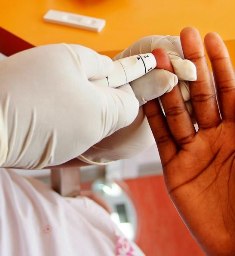
Community urged to take up free HIV test
 (CNS): The Cayman public is being encouraged to take advantage of free HIV testing next week during the Health Services Authority (HSA), the Cayman AIDS Foundation and the Red Cross local campaign. This year HIV Testing week runs from Monday, 27 June to Friday, 1 July and coincides with international HIV testing days around the world. All efforts are geared towards supporting people to voluntarily seek HIV testing and counselling with this year’s theme being Take the Test, Take Control – Be > than AIDS. The campaigns encourage all to play their part in halting the HIV/ AIDS epidemic by being aware of one’s HIV status and to practice safe sex.
(CNS): The Cayman public is being encouraged to take advantage of free HIV testing next week during the Health Services Authority (HSA), the Cayman AIDS Foundation and the Red Cross local campaign. This year HIV Testing week runs from Monday, 27 June to Friday, 1 July and coincides with international HIV testing days around the world. All efforts are geared towards supporting people to voluntarily seek HIV testing and counselling with this year’s theme being Take the Test, Take Control – Be > than AIDS. The campaigns encourage all to play their part in halting the HIV/ AIDS epidemic by being aware of one’s HIV status and to practice safe sex.
Health minister Mark Scotland asked residents to take the test, know their status, and take control. “Even after 30 years of education and prevention efforts, HIV continues to be a critical issue throughout the world; one of which we are not exempt,” Scotland stated. “Fortunately, we can do something: Get tested for HIV; practice safe sex; talk about HIV with family, friends and colleagues, support people living with HIV and AIDS and get involved with the National HIV Testing Week in your community”.
He said knowing your status can make a difference.
“Some people who have HIV are not even aware of it. But those individuals who do know are living longer, better quality lives due to the treatments they receive. Knowing your status means taking control and being responsible for your own health.”
HSA HIV/AIDS Program Coordinator Pauline Ffrench echoed the importance of minimizing the risk and stopping the spread of HIV. “In principle, everyone who is old enough for sexual activity is at risk for becoming infected with HIV. The best way to reduce your risk of becoming infected with HIV is to avoid risk taking behaviours that give the virus a chance to spread from someone else to you. The main behaviour change should be to prevent all unsafe sexual practices and engage in faithful relationships,” she added.
Free HIV testing will be available from 9 a.m. to 2 p.m. at all district health centres on Grand Cayman, at the George Town General Practice Clinic, Public Health Clinic , Faith Hospital on Cayman Brac, and the Little Cayman Clinic by appointment.
The testing procedure involves a quick and simple blood test. No appointment is necessary at the larger clinics and the waiting time for testing is usually no more than ten minutes. Persons who are seeking testing or counselling need to indicate to the registration clerksthat they would like to register for free HIV screening.
The results will be available in three working days and will be given to the patient only, who must return to the clinic where the test was taken to get the results. This is to protect the confidentiality of the individual and to offer counselling.
For more information about HIV testing week, Contact HIV AIDS programme coordinator Pauline Ffrench at 244- 2631 or Laura Whitefield at 244 2507.
Bank show cases the value of art
(CNS): The latest artist to adorn the walls of Butterfield is Kaitlyn Elphinstone. The exhibition ‘Vertebytes’ is curated by well-known local artist David Bridgeman and opens on 1 July to customers and the public and runs until November at the Butterfield Hall of Art, located on the second floor of Butterfield’s flagship building, Butterfield Place — a public space dedicated to featuring the artworks of emerging artists. With a background in Visual Studies and Art History from the University of Toronto, Kaitlyn’s work is conceptually grounded. “The formal setting and urban landscape of Toronto allowed me to refine my visual and conceptual vocabulary, a vocabulary that emerged through a focus on the intersection between natural and man-made constructs,” she said about her work.
Kaitlyn has recently returned to Cayman after completing an MA in Arts Policy and Management at Birkbeck, University of London.
The exhibition Vertebytes examines life instances through a series of fifteen digitally constructed images. The images and exhibition layout explores everyday occurrences though various themes such as the concept of time, our understanding of process, our experience of rhythm, movement and repetition.
Constructed from the original work “Vertebytes” currently on display at the National Gallery of the Cayman Islands, the exhibition remains consistent with Kaitlyn’s process-intensive approach. The image stills have been derived from video, then digitally constructed to suspend animated instances into single visual images. The process was initiated by an exploration into the disparities between human and digital capacities in evoking life instances or memories.
“The Butterfield Hall of Art is the perfect place for emerging artists to experience their first solo exhibition, as the space provides great exposure for new artists on a daily basis,” said David Bridgeman. “It is important for all artists to exhibit, not only for the commercial aspect but, in my opinion and more importantly, to reflect on the work that has been done.”
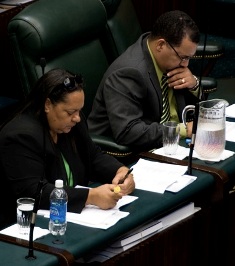
Legislators plough through appropriations
 (CNS): Disparity in weather forecasts, falling stamp sales, problems with farmer’s ID cards and the proposed traffic law were just some of the issues that the country’s legislative members were discussing on Wednesday as Finance Committee continued its work approving spending for the Ministry of District Administration, Works, Lands and Agriculture. The minister revealed that the traffic law would be coming to the Legislative Assembly in September, that public works was not expecting a surge in medical waste during this financial year in relation to the proposed Dr Shetty plant, and that the dump’s current tyre shredder was not capable of turning the rubber into mulch. (Photo Dennie Warren Jr)
(CNS): Disparity in weather forecasts, falling stamp sales, problems with farmer’s ID cards and the proposed traffic law were just some of the issues that the country’s legislative members were discussing on Wednesday as Finance Committee continued its work approving spending for the Ministry of District Administration, Works, Lands and Agriculture. The minister revealed that the traffic law would be coming to the Legislative Assembly in September, that public works was not expecting a surge in medical waste during this financial year in relation to the proposed Dr Shetty plant, and that the dump’s current tyre shredder was not capable of turning the rubber into mulch. (Photo Dennie Warren Jr)
Few details about the capping and relocation of the landfill emerged, however, when the MLAs voted $3.6 milllion for waste collection services. The increase in the cost of managing government properties from $11.4 million to $15.7 million was said to be mostly as a result of the new Government Office Accommodation building, and the increase in revenue from government to the national mail service by some $300,000 was down to a decline in stamp sales which is where the bulk of the post offices revenue comes from.
During Finance Committee all member of the assembly get to ask questions and grill ministers, chief officers and managers of various government departments about their budget allocations. It is also an opportunity for the members to raise any problems their constituents may have with government services and departments. Farmers ID cards, electrical problems at the North Side civic centre and tide forecasts by the weather services were just some of the issues members were questioning onbehalf of their constituents.
In order to complete the work this week members are sitting late into the night to scrutinize the budget appropriations which are now available here.
The main document setting out government spending is also here